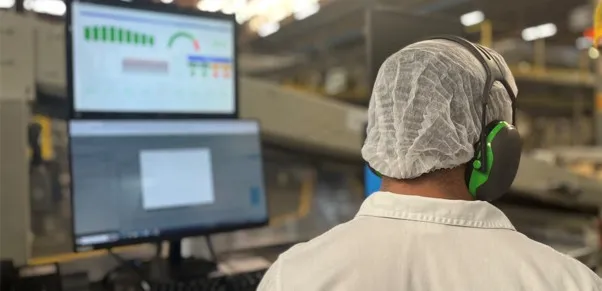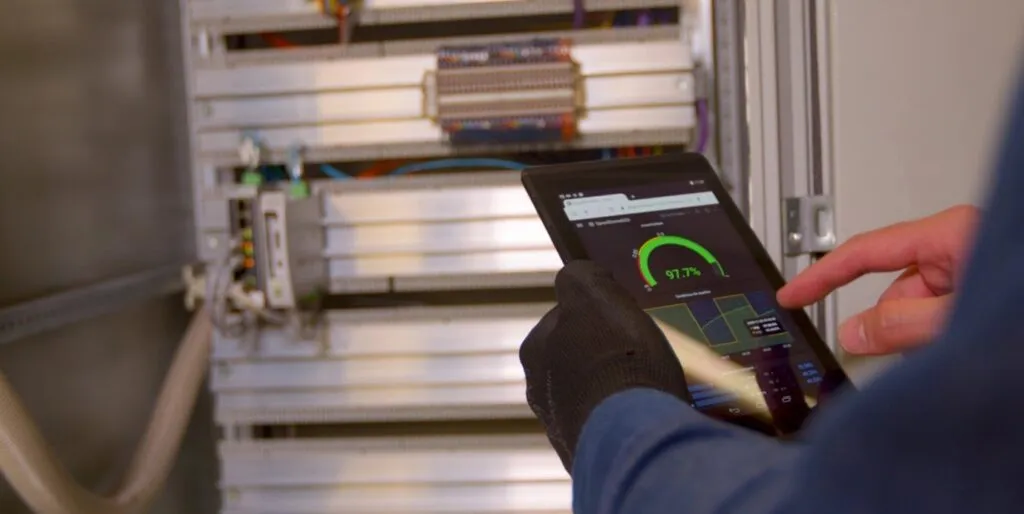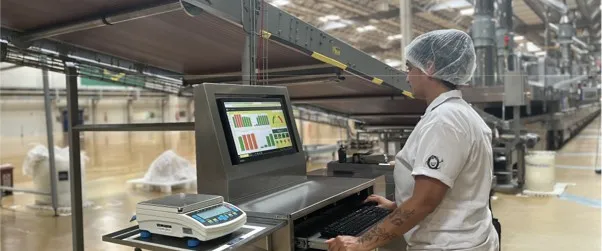Indústria tecnológica: futuro do trabalho coloca pessoas e máquinas lado a lado
A especialista Mariana Porto Mapelli afirma que o papel do líder ganha ainda mais relevância, sendo responsável por engajar e preparar as equipes para a transformação digital

Imagine um ambiente industrial onde humanos e máquinas atuam como parceiros, combinando inteligência humana e automação para impulsionar a produção. Esse é o futuro da indústria tecnológica, também chamada de indústria 5.0, que busca inovação sem renunciar ao papel essencial das pessoas nas fábricas.
Nos últimos anos, muito se falou sobre a adoção da automação, da Inteligência Artificial e da Internet das Coisas para otimizar processos. Agora, essa nova revolução industrial propõe um passo além: usar a tecnologia para valorizar o trabalho humano, e não para substituí-lo.
“Colocar o ser humano como o centro dos processos ao invés da ‘máquina’, como no conceito da Indústria 4.0, nos garante melhor sustentabilidade do negócio, mais colaboração, otimização de processos para que haja um foco mais voltado ao bem-estar humano, qualidade de vida, que haja uma interação homem-máquina mais saudável“, explica Mariana Porto Mapelli, engenheira química e especialista em gestão de pessoas e melhoria contínua, que conversou com a equipe da ST-One sobre o que muda na vida dos trabalhadores, da liderança e como se destacar nessa nova realidade.

O impacto da Automação na vida dos trabalhadores
Diferente do que se temia no passado, a automação não deve extinguir empregos, mas sim transformá-los. Com máquinas assumindo tarefas repetitivas e operacionais, aliada à cultura de dados, os profissionais podem focar em estratégia, criatividade e inovação.
“Quando aplicada da forma correta, potencializa a versão humana, pois nos dá tempo de sermos mais criativos, mais ágeis, facilita rotinas repetitivas, nos ensina novas habilidades. Com o equilíbrio do uso da tecnologia, haverá mais foco humano na estratégia, facilitação nas tomadas de decisão, melhor ambiente de trabalho e mais empoderamento do colaborador, visto que na Indústria 5.0 não há uma substituição do ser humano e sim um processo de colaboração”, destaca Mapelli.
No entanto, essa transição também traz desafios. Segundo a especialista, um dos principais é a resistência à mudança. ” O ser humano tende a resistir a mudanças, por isso, a transição para a Indústria 5.0 exige uma gestão de mudanças bem estruturada. As empresas precisam investir em capacitação e comunicação transparente para preparar as equipes, garantindo que compreendam os benefícios da tecnologia e saibam utilizá-la a seu favor.”
O papel da liderança nessa nova era
A adoção de tecnologias avançadas também exige uma mudança na forma como as empresas gerenciam seus times. O papel do líder ganha ainda mais relevância, sendo responsável por engajar e preparar as equipes para a transformação digital e a cultura de dados.
“O líder precisa atuar como facilitador nesse novo modelo, ajudando a equipe a enxergar a tecnologia como uma aliada. Para isso, transparência e segurança são fundamentais, garantindo que os colaboradores se sintam confiantes durante a transição”, pontua Mapelli.
Com a crescente digitalização, garantir a satisfação e o bem-estar dos trabalhadores se torna um desafio para as empresas. Para Mapelli, a chave está em um ambiente mais flexível e humanizado.
“Dar voz ativa ao colaborador, oferecer flexibilidade (seja com modelos híbridos ou jornadas adaptáveis) e investir em capacitação são estratégias fundamentais para equilibrar tecnologia e humanização”, recomenda. “A gestão de pessoas precisará ser mais estratégica e centrada na colaboração entre humanos e máquinas. As empresas que conseguirem equilibrar tecnologia, bem-estar e inovação sairão na frente”, finaliza a especialista.

As habilidades do profissional na indústria tecnológica
Confira abaixo as dicas da especialista para os profissionais que querem se destacar no mercado de trabalho nessa nova era. De acordo com Mariana, será preciso desenvolver um conjunto de habilidades que vão além do conhecimento técnico. Confira:
- Análise de dados: a cultura de dados está cada vez mais forte. Portanto, saber interpretar informações e tomar decisões baseadas em evidências.
- Compreensão da automação: entender como utilizar robôs colaborativos (cobots) e Inteligência Artificial para otimizar processos.
- Inteligência emocional: lidar com desafios, adaptação constante e trabalho em equipe.
- Habilidades interpessoais: comunicar-se bem, colaborar e atuar de forma ética no ambiente digital.
Mariana Porto Mapelli é formada em Engenharia Química pela Universidade Federal de Santa Catarina, com MBA em Gestão de Pessoas pelo IPOG – Instituto de Pós-Graduação e Graduação. Sua atuação engloba a coordenação de produção de empresas multinacionais no estado de Santa Catarina, sendo responsável, entre outros, pela gestão direta de pessoas e lideranças, com foco em desenvolvimento operacional.
Serviço – Assessoria de Imprensa ST-One
Jornalista responsável: Ana Cunha
E-mail: assessoria-imprensa@st-one.io